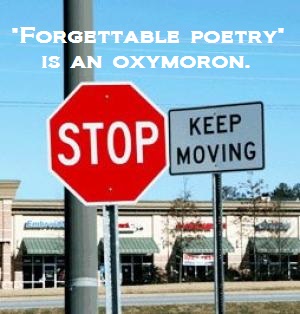When you arrive at a website your browser presents a "certificate" stating where your computer is located, what operating system and web surfer you are using. This data, collected by the software that drives sites like this one, allows webmasters and bloggers to create a rough demographic picture of your viewership. For example, this is a snapshot of traffic here in the last little while, starting with country of origin:
United States 146
Ireland 24
India 24
United Kingdom 22
Philippines 21
Ukraine 20
Brazil 15
Netherlands 15
Canada 12
China 10
Among the English speaking nations, the disparity between the United Kingdom and the United States reflects our Amerocentric spelling and points of reference. The stereotype of the Irish being a poetic nation finds some evidence here. Bearing in mind that we're talking about English language discourse and verse, the interest from the Ukraine, Philippines, Brazil, Netherlands and China reminds us how much healthier the art form is outside anglophone countries. The percentage of visitors from India, which has more English speaking people than any other nation and retains a keen interest in the subject, is quite low in this particular survey.
Here are the operating systems used by our visitors:
Windows 231 (58%)
iPhone 58 (14%)
Android 45 (11%)
Macintosh 28 (7%)
Linux 18 (4%)
iPad 13 (3%)
Unix 3 (less than 1%)
The tendencies may be too weak to draw conclusions, but the data sample suggests a demographic that is working/middle class and more savvy than the average computer user. This is supported by the low number (1%, listed below) of Windows users who cling to Internet Explorer. 7% are likely using mainframes at work and 25% come to us via small-s smart phones, which suggests a somewhat keen interest.
Chrome 213 (53%)
Firefox 84 (20%)
Safari 73 (18%)
Internet Explorer 8 (1%)
Opera 6 (1%)
UCBrowser 6 (1%)
GSA 5 (1%)
Mobile Safari 5 (1%)
CriOS 1 (less than 1%)
The list of preferred articles underscores how people might want to influence, be or learn to become poets, but not to read actual poems:
10 Greatest 21st Century Poets - The List - 146
Scansion for Beginners - 9
10 Greatest 21st Century Poets - Versers - 7
The Ten Most Influential People in Poetry Today - 7
To be fair, our "Great Poems of our Time" series was 10th overall in readership. As always, we're gratified to see the interest in verse-writing.
What caught our eye were the traffic sources or referrals. That is, what brings people here?
Google 118
Android Quicksearch 2
Mirrors 8
ECabotage 20
Of 148 visitors, 8 were from forwarding mirrors (e.g. if you type "commercialpoetry.blogspot.co.uk" or "commercialpoetry.blogspot.fr" you are redirected from the facsimile site in the UK or France to here). 120 were from search engines, who are presumed to be newcomers because regulars would normally bookmark your site. 118 of these got there via Google, which speaks to the utter dominance of that particular choice over, say, "Bing". It also says something about interconnectivity within the poetry world: There is none. There are eddies but no river. That is, with all of the other blogrolls and hypertext out there, few or, in our case, none of the visitors follow links from other poetry web sites. From talking with other webmasters, we can confirm that the current crop of poetry onliners are among the least curious people on the Internet. They almost never click on the unknown. As we've said before, "They are the most cliquish and least clickish." For what it's worth, this is a complete turnabout from 20 years ago, when rec.arts.poems Usenetters were among the most outgoing or welcoming (though not always welcome or well-mannered) among Internauts.
When we are posting more regularly we see a number of Facebook and, far less often, Twitter referrals. This is the audience everyone wants, but far more common are the web searchers. It is gratifying when Googlers have a native curiosity about the subject at hand but most are students wanting to copy and paste their homework assignment. The comments section is often flooded with questions like "Can you cite three instances of irony in 'Hamlet'?" or "What is 'The Red Wheelbarrow' about?"
ECabotage
The most rewarding number is always ECabotage (or "e-cabotage, rhyming with "we sabotage"). As you know, cabotage refers to transportation within a nation, not to be confused with the international voyage that brought these passengers or goods into the country in the first place. ECabotage involves those who come to your site and, having sampled one of its wares, decides to examine other posts there. This is a credit to the web editors and to the authors of the material. For a typical poetry collection, it involves someone coming to read a poem written by themself, a friend or relative and sticking around to examine the works of a stranger.
Levels vary from genre to genre. Sites detailing popular pursuits will have a lot of ECabotage; a person who goes to NFL.com to read about Tom Brady might well stick around to read the latest on fellow SuperBowl-winning Quarterback Ben Roethlisberger. Given the high percentage of Looky Lus and the low level of poetry consumption in general, 2% ECabotage is encouraging. That is, if one in fifty arrivals is from another page on the same site, the staff and contributors are doing well. One in twenty is exceptional and one in ten would be phenomenal. We here at Commercial Poetry are delighted with our one in six rate, and would be even more so if this were a typical compendium of poems. In any case, we are grateful to those who take the time to ponder our offerings, all the more so if they sample more than one.

































